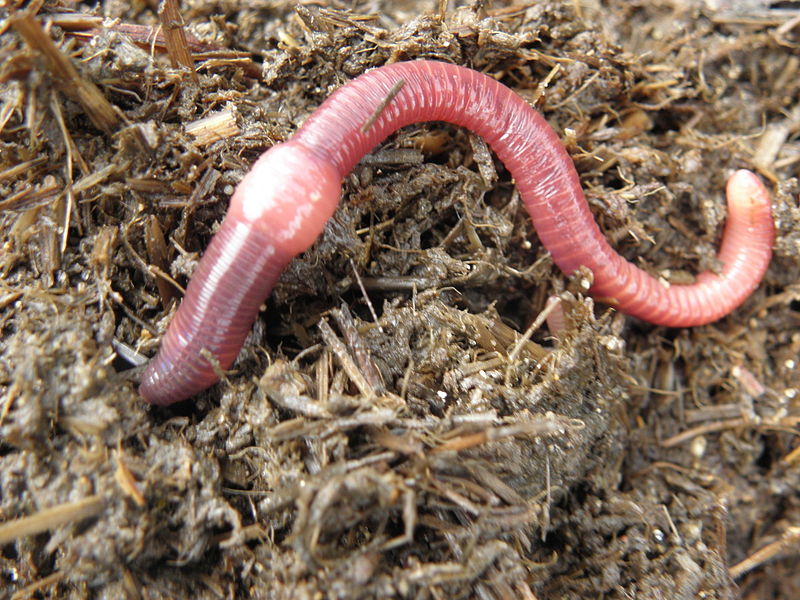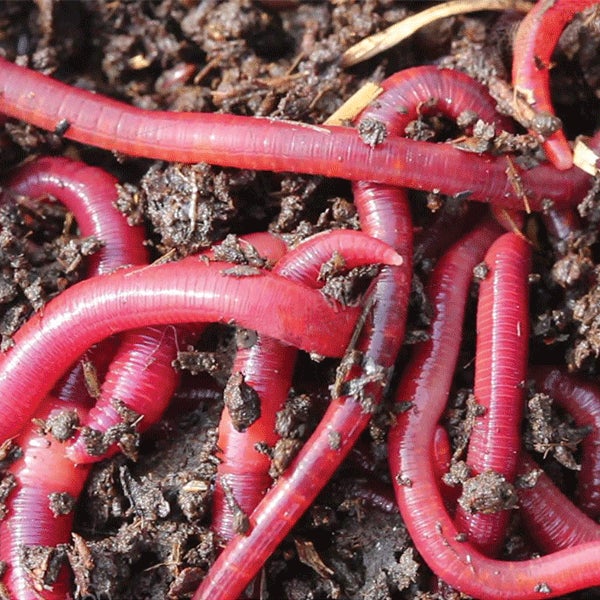Red worms: Make composting easy
Red worms: Make composting easy
Blog Article
Why Red Wigglers Are Necessary for Chemical-free Farming
Red wigglers play a pivotal function in natural farming, mainly via their one-of-a-kind capacity to break down organic materials and enhance soil wellness. The degree of their impact on farming practices and dirt biology raises interesting questions about the future of natural farming.
Role of Red Wigglers in Soil Health

Additionally, red wigglers enhance soil framework by creating channels as they delve. These channels improve aeration and water seepage, promoting a healthier root atmosphere. Their task likewise helps in preserving optimum dampness degrees, which is important for healthy and balanced plant growth.

Benefits of Worm Castings
Worm spreadings, the nutrient-rich excrement generated by red wigglers, act as an effective change for chemical-free farming. These spreadings are abundant with crucial nutrients such as nitrogen, phosphorus, and potassium, which are essential for plant development. Unlike artificial plant foods, worm spreadings release nutrients gradually, offering a consistent supply gradually and minimizing the danger of nutrient leaching and drainage.
Furthermore, worm castings improve soil structure and oygenation, promoting healthier origin systems. Their high natural issue web content improves moisture retention, allowing plants to better hold up against dry spell conditions. Additionally, worm castings contain beneficial microorganisms that support plant wellness by suppressing microorganisms and boosting vitamins and mineral uptake.
The application of worm spreadings can bring about increased crop returns and enhanced top quality of fruit and vegetables, making them an indispensable resource for organic farmers. Their use likewise aligns with sustainable farming methods, adding to soil fertility without the unfavorable ecological impacts related to chemical fertilizers. Generally, the unification of worm spreadings right into agricultural techniques fosters a more resistant and effective community, highlighting the significance of red wigglers in natural farming systems.

Enhancing Nutrient Biking
(red worms)Nutrient biking is a critical procedure in natural farming, and the integration of red wigglers plays a crucial duty in enhancing this cycle. These earthworms add dramatically to the malfunction of raw material, facilitating the transformation of complicated natural products into less complex, a lot more obtainable nutrients for plants. As red wigglers consume decaying raw material, they home secrete nutrient-rich spreadings, which are brimming with valuable microorganisms. This microbial activity additional aids in the decay process, guaranteeing that necessary nutrients are easily offered for plant uptake.
Additionally, red wigglers assist to speed up the mineralization of nutrients, converting them from inert kinds into bioavailable types that plants can absorb. This procedure is critical for maintaining soil fertility and promoting healthy and balanced plant growth. The visibility of red wigglers additionally motivates a diverse soil environment, fostering a balance of nutrients that sustains different plant types.
Improving Soil Structure
The enhancement of dirt structure is essential for fostering a healthy and balanced farming ecosystem, and the task of red wigglers considerably adds to this improvement. These earthworms play an important duty in freshening the soil and developing a network of channels that help with water infiltration and origin infiltration. As they burrow with the dirt, red wigglers separate compacted layers, allowing for far better oxygen exchange and advertising microbial task.
In addition, the natural matter produced from their waste, called vermicast, boosts dirt gathering. This procedure creates stable globs of dirt fragments, boosting soil porosity and decreasing disintegration (red wigglers). The presence of red wigglers additionally encourages the growth of valuable fungal networks, which are vital for nutrient uptake by plants
Supporting Sustainable Practices
Incorporating red wigglers right into chemical-free farming practices not just enhances soil wellness however additionally advertises sustainable farming techniques. These earthworms play an important function in nutrition biking, transforming natural waste into valuable compost that improves the soil. By utilizing red wigglers, farmers can properly decrease dependence on synthetic fertilizers, consequently decreasing chemical runoff and its harmful effects on ecological communities.
Furthermore, the unification of red wigglers encourages the method of recycling organic products, such as kitchen scraps and farm waste. This waste reduction technique not only lowers disposal costs however also promotes a closed-loop system where nutrients are continually gone back to the dirt (red wigglers). Such practices are necessary in reducing climate change, as they boost carbon sequestration and decrease greenhouse gas exhausts
Moreover, red wigglers boost water retention in the dirt, which is crucial in times of drought. Their burrowing activities create channels that enable water to pass through deeper into the ground, hence promoting reliable water use. Ultimately, incorporating red wigglers into chemical-free farming not only supports biodiversity but likewise aligns with the principles of lasting agriculture, providing an alternative method to food manufacturing.
Conclusion
Finally, red wigglers play a crucial role in chemical-free farming by considerably enhancing soil health and wellness and fertility. Their capacity to decompose raw material and create nutrient-rich spreadings cultivates a flourishing microbial area, which is vital for vitamins and mineral biking. Additionally, the delving tasks of these worms improve soil structure and aeration, facilitating better water seepage and root development. Thus, the combination of red wigglers right into farming practices is crucial for promoting sustainability and enhancing general dirt top quality.
Report this page